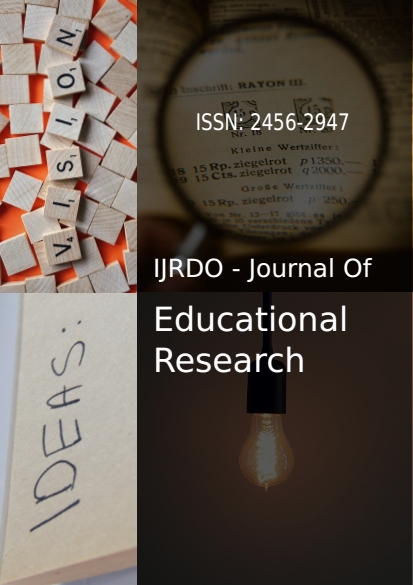POLITIQUE DE RECRUTEMENT DES NOUVELLES UNITES DANS UNE INSTITUTION DE L’ENSEIGNEMENT SUPERIEUR ET UNIVERSITAIRE
Abstract
The survey is about the recruiting politics of new units in an institution of the higher education and academic, case of the ISC/Kisangani of 2012 to 2017.
Our survey sets like objectives to value the recruiting politics of the new units. Concretely, it about of :
- To determine if recruiting politics of the new units corresponds to the criteriaas of engagement of the staff within the ESU ;
- To show if they are satisfactory, that is to say to the doorstep superior or equal to 50%.
The recruitment within establishments of the ESU is guaranteed by the academic instructions in force, but today following the mutations observed in the chief of the politicians, the sector of the ESU displayed of the antivaleurs without names whose ISC/Kisangani is not saved. The staff’s recruitment doesn’t respect the procedures in force insofar as Rectors and General Managers receive some recommendations without holding account of the criterias of eligibility and the setting and organic structure.
Downloads
References
o http://www.groupesce.com/fr/services/recrutement-selection-personnel
o Organisation de Coopération et de Développement Economique
o Quatrième Congrès International du Management de la Qualité dans les Systèmes d’Education et de Formation – CIMQUSEF 2007, sous le thème: L’enseignement supérieur et la recherche face aux enjeux de la société du savoir. Ténue à Casablanca au Maroc du 17 au 19 avril 2007.
o Vade-mecum
o Instructions académiques 020
o Statut du personnel de l’Enseignement Supérieur et Universitaire 2018
Copyright (c) 2020 IJRDO - Journal of Educational Research (ISSN: 2456-2947)

This work is licensed under a Creative Commons Attribution-NonCommercial-NoDerivatives 4.0 International License.
Author(s) and co-author(s) jointly and severally represent and warrant that the Article is original with the author(s) and does not infringe any copyright or violate any other right of any third parties, and that the Article has not been published elsewhere. Author(s) agree to the terms that the IJRDO Journal will have the full right to remove the published article on any misconduct found in the published article.



